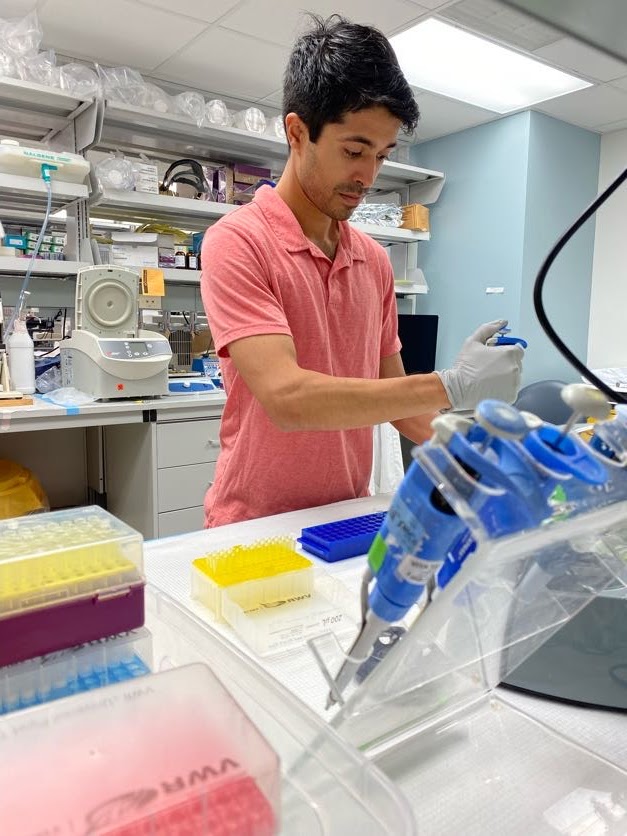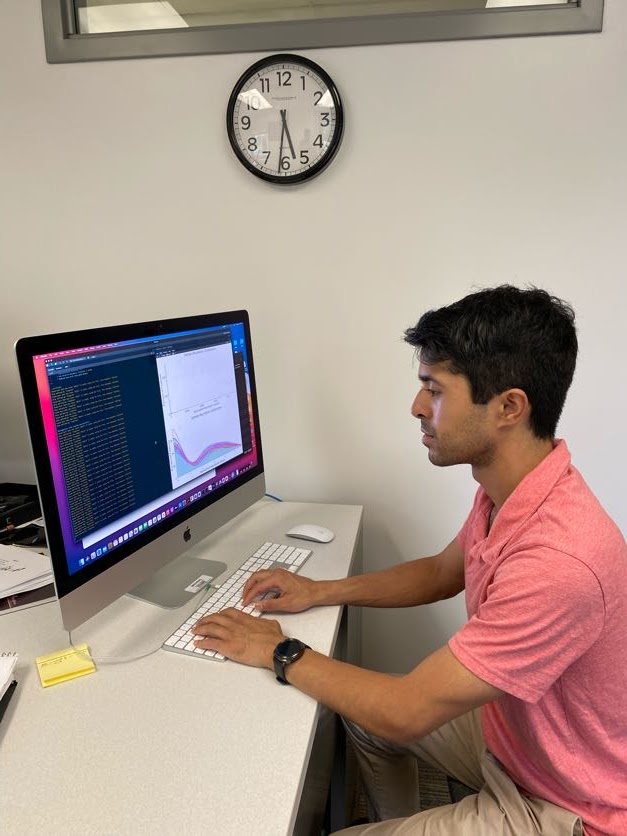Q&A with Soham Ali: Discovering the nuances of physiology and disease through colorectal cancer research
Soham Ali is in his fourth year of medical school and will be presenting his research at the 2021 Medical Student Research Conference September 15-16.


What sparked your interest in pursuing research during medical school?
The medical field is constantly evolving, and regardless of specialty, staying abreast of new findings in either clinical or basic research is important to clinical practice. This informs decision-making and elucidates the pathophysiology behind patients’ illnesses. My passion for medicine is a combination of understanding how our bodies function and applying that knowledge to healing. Research provides opportunity to contribute to the former and the entire scientific and medical community. Additionally, I feel better equipped because I can critically appraise research that may be applicable to my patients.
Summarize the research you will be presenting at this year’s Medical Student Research Conference:
Recent studies have revealed a potential role of the human microbiome in numerous diseases, purportedly through modulating local and systemic inflammation. In colorectal cancer (CRC), studies have identified Bacteroidetes fragilis, Escherichia coli, and Fusobacterium nucleatum as bacterial species that release toxic metabolites leading to increased colonic inflammation and an increased risk for malignant neoplasms.
In the past decade, incidence of CRC in individuals younger than fifty-years-old has been increasing at an alarming rate. Additionally, these patients tend to have primarily distal CRC while patients older than fifty-years-old are diagnosed with proximal cancers. The location of CRC plays an important role in treatment regimens due to their differing cellular and molecular pathologies. Lastly, one of the difficult parts about analyzing the human gut microbiome is obtaining stool samples without dramatically inconveniencing study participants.
With the help of my mentors Dr. Ashutosh Mangalam and Dr. Pashtoon Kasi, I began a project to identify possible microbiome differences between proximal and distal cancers as well as early (<50 years old) and later onset (≥50 years old) CRC. I also wanted to determine if anal swabs could be used as a more convenient method of sampling gut microbiota. During the past year, I collected samples from over eighty CRC patients to analyze their anal and stool microbiomes.
Our study demonstrated that anal samples are not only a more reliable sampling method but can capture the microbiome profiles of stool samples with the addition of skin commensal bacteria. Additionally, we found significant microbiome differences between proximal and distal cancers. I hope to analyze the functional capacities of the bacteria we identified to shed light on how they may modulate disease.
What is your favorite part about doing research in medical school?
My favorite part of research in medical school is learning about and discovering the nuances of physiology and disease. When analyzing patients’ lab values in the hospital, we are used to cutoffs for what is considered within “normal” range. However, biology is rarely ever discrete, and developing a more intimate understanding of the science behind medicine has allowed me to appreciate the rationale behind the clinical decisions we make as well as some exceptions to the rules we have made. For this reason, I find being involved in research keeps me thinking critically about the clinical decisions I make.
Any additional comments you would like to share relating to your research experience as a medical student?
Many of us will only have about three months to dedicate to research, so it can be difficult to see a project from start to end. I learned the most, and had more of an impact on projects, when I analyzed data that was previously available and collected. If you can find projects where data needs to be analyzed, this provides an opportunity to have ownership over the project and more quickly translate your work into tangible outcomes in the form of a presentation or manuscript.